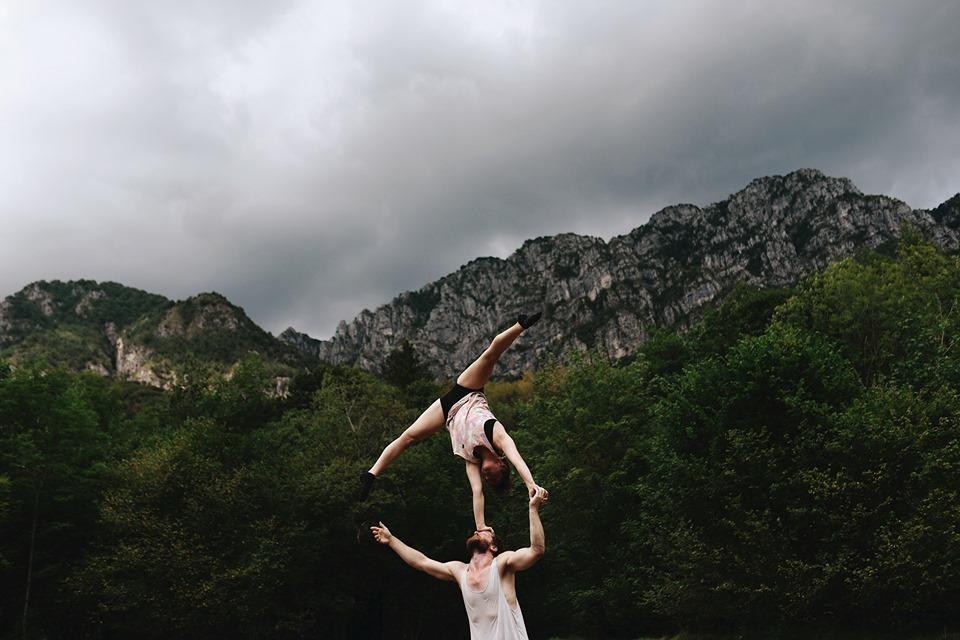Brocante 2019
“Only in what remains of Paradise, teeming with life that does not depend on us, is it possible to experience the kind of wonder that shaped the human psyche at its origins”
(E.O.Wilson)

Another paradise
Inspired by Wilson's phrase, we decided to give this title to the twelfth edition of Brocante. The question we asked ourselves as a basis for reflection was: where is Paradise left? Pietro Rosa, a poet from the Friulian foothills, suggests this answer: "On this side and on the other side. On this side, whenever man bends the laws of physics, chemistry, biology, in a word, of the Cosmos, to save himself and those he loves. On the other side, whenever he is forced to bend in the pain of the umpteenth, of the many losses that humanity has known on this planet. The Circus tries to play with the laws of physics and bends now on this side, now on the other side, where it tests and meets the Limit of a paradise to be conquered daily."
The topic chosen this year helped us to intertwine three notions that are not usually thought of together: otherness, that is, the character of that which is other than itself, which is not identical and, by extension, not even normal; paradise, that is, something that would intercept the utopian idea of limitless happiness, of bliss; and finally, of course, the circus. During the 2019 edition of Brocante we tried to say something about Paradise and, above all, about the Circus starting from the notion of “other”, of something that we cannot define except by comparing it to what is familiar to us. First of all, we realized that, before anything else, it is necessary to accept the existence of the other. Something not entirely obvious in the times of Bolsonario, Trump and Salvini. Next: what can the circus say today about otherness? The circus has certainly already been “other” from itself: that is the title of a book published in France in 1992, “Other Circus”, which with this expression claimed to introduce us to a set of artistic adventures that are difficult to define otherwise. After centuries of circus, suddenly the counterculture of 1968 had brought a new genre to the artistic scene, defined by a journalist only twenty years later, in 1985, as “New Circus”. In fifty years that new genre, made of research and the need to escape definitions, has become institutionalized, has found its own spaces, high schools and diffusion structures, has transformed itself into what we call contemporary circus. The question is then even more urgent: is this an art form still capable of intercepting otherness? Behind the word Other is certainly expressed the idea of novelty, but above all the impossibility of defining that same novelty. Brocante, International Meeting of Contemporary Circus, has always reflected on the possibility that the circus encounters otherness and thus generates new ways of acting and thinking, new worlds, Paradises. It does so by making it possible for 150 artists from all over the world (Australia, Costa Rica, Brazil, Chile, Argentina, United States, Sweden, Finland, Iceland, Austria, France, Spain, Ireland, Belgium, Holland, Lithuania, Mexico and Italy) to create shows, moments of discussion and sharing without limits or definitions. In this sense Brocante is not a festival, it is a meeting where moments of research point to the Other compared to the everyday, compared to the way of seeing and producing circus along the normality of one's professional path. For this reason Brocante remains a small reserve of Paradise, where artistic research is possible without expectations, where the only goal is Beauty. The relationship with the beauties of Valcolvera, one of the Paradises of Friuli Venezia Giulia, the synergy with the inhabitants of the valley and with the 10,000 spectators who came over the four days, have also this year created the ideal scenario for yet another artistic experiment, outside of any context of sales and promotion of any show, of a circus without possible definitions. Brocante Association, and Jean Michel Guy.